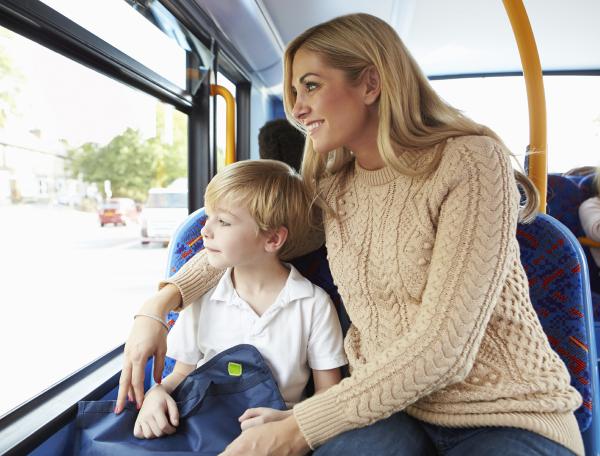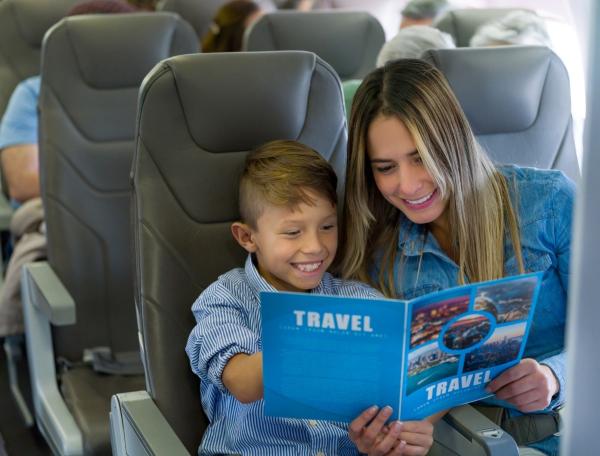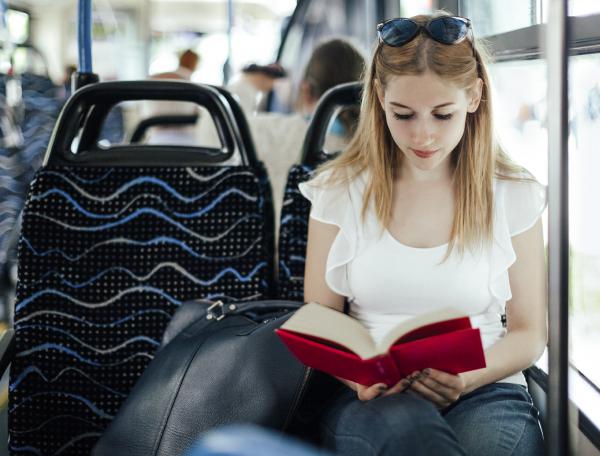The travelling classroom

Do you spend time on public transport with your child? Here are some ideas you can try to turn your travel time into learning time.
Letters and numbers
Use your time on public transport to encourage your child to read from their school reader or library book. You can read stories to your child too – or listen to audio books together. Encourage older children to use their travel time to enjoy a story, even if they are going to school by themselves.
Younger children love to impress you with their knowledge, and there are lots of challenges you can give them while travelling. Here are a few ideas to get you started:
- point out letters, numbers and words they see on street signs, number plates and billboards
- see how many things they can see in one colour (and then progress through the colours of the rainbow)
- count how many people they see wearing hats, or how many trucks you pass
- play a memory game together, such as “I went to the shop and I bought a …”, with each person adding one thing to the list on their turn.
Older children might like to show off their spelling or mental maths. Just make sure you keep it fun, and match the challenge to their skill and energy levels.
Puzzle time!
Doing crosswords, sudokus, word-searches and other puzzles with your child is both fun and educational, as they help with literacy, general knowledge and maths. You can find puzzles in community papers, free apps for your smart phone or keep a crossword book in your bag just for these commute times.
I’m thinking of…
Most kids love playing guessing games, especially if they have a chance of beating you! Try this classic game to encourage your child’s questioning and reasoning skills:
Tell your child ‘I’m thinking of an animal. Try to guess what it is by asking me “yes” or “no” questions – you have up to 20 questions.’ If they guess correctly in 20 questions or less, they get to think of the next animal. If not, tell them the answer and then think of another animal.
Tip
Adjust the difficulty of the game to suit your child –choose basic animals, like dogs, cats, lions and bears for younger children. Older kids may enjoy the challenge of harder choices, like dolphins and echidnas, or introducing other objects to the game – such as places, famous people or plants.
Check in and chat
You can also spend this time just talking with your child – about their day, what they are learning in class, or current affairs that are likely to be of interest to them. This will help their thinking and communication skills as well as helping them learn about the world. It can also be a great opportunity to check in with your child about how they are feeling in general, or to plan together for an upcoming event.








